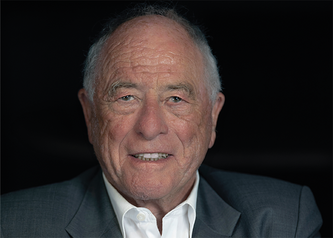
John Yates III
Ernest W. Hahn Professor, Departments of Molecular Medicine and Neurobiology, The Scripps Research Institute, USA
John Yates is focused on the development and application of mass spectrometry-based proteomics techniques to a wide range of biological questions. He has appeared on The Power List on five occasions – including in 2013, the first Power list, when he was ranked number one. In 2013, he championed the impact of technology in life science. “It’s the power of the technology that we and others have developed in quantitative proteomics to enable the study of all kinds of new things,” he said. “As new questions come up in biology it often requires technology development to get a real insight, and that’s made life fun over the last 20 years.”
In 2015, when asked about his “encounters with serendipity,” he said: “Maybe, but there have been many more ‘aha’ moments. One of the first was when I first tried to search tandem mass spectra through a set of sequences and it worked well. I expected it not to work.”
Fast forward to 2023, John was ranked as one of the top 10 Leaders and Advocates of the decade. He said: “We need to hammer on the fact that our lives are touched by analytical science in everything we do. It keeps our water, food and air safe, it helps us diagnose disease, and it helps drive innovations and discoveries.”

Gary Siuzdak
Senior Scientific Director and Professor of Chemistry, Molecular, and Computational Biology at Scripps, USA
Gary Siuzdak has developed MS-based methods to measure and identify metabolites, and his laboratory has built widely used software tools, including the METLIN database. He has been featured in The Power List on three occasions (2017, 2019, and 2021). Why metabolomics? In 2017, he said, “In a word: phenotype – metabolites are the most downstream components in the biochemical cascade and therefore are closest to the phenotype. Thus, metabolomics can be used to identify metabolites for phenotype modulation; I believe this is where the real power of metabolomics lies.”
In 2021, when asked about his heroes, he said: “Think of a world without quadrupole mass spectrometry. Without the contribution of Nobel Prize winner Wolfgang Paul (a personal hero), quadrupole mass spectrometry technology probably wouldn’t have ever existed.”
In 2023, XCMS-METLIN – the first completely data-driven metabolomics/lipidomics platform with MS/MS data on over 930,000 authentic standards – was ranked first in The Analytical Scientist Innovation Awards.

Kim Prather
Distinguished Professor & Distinguished Chair in Atmospheric Chemistry, Scripps Institution of Oceanography, USA
Kim Prather has been featured on The Power List on four occasions (2016, 2017, 2019, 2023). Kim focuses on developing and conducting measurements for aerosol chemistry. Asked about her motivation in 2017, she said: “Making a difference for our planet. Our research on aerosol impacts on clouds can help explain why we are seeing a sudden increase in weather-related disasters.” She once discovered that dust from 12,000 miles away in Africa (and ocean microbes) affects snowfall over California – her most rewarding moment.
In 2016, she said: “I am very interested in how Mother Nature controls the climate. Our overall goal is to help better understand how clouds form so that we can make effective solutions to address climate change – considered by many to be the largest environmental challenge in our lifetime.”
She also spoke about the role of mass spectrometry in the future of climate change and atmospheric chemistry in identifying the chemical species in the atmosphere – an elusive goal. “The game-change technology will be on-line mass spectrometers with the necessary sensitivity and selectivity to identify more species that are playing a critical role in affecting human health and our climate. An even loftier advance would be to identify the chemical species on the surfaces of aerosol particles, which ultimately play a critical role in controlling clouds and the heterogeneous reactions that occur in the atmosphere.”

Kurt Wuthrich
Cecil H. and Ida M. Green Professor of Structural Biology, Department of Integrative Structural and Computational Biology, The Scripps Research Institute, USA
Kurt Wuthrich has been featured on The Power List on two occasions (2013 and 2015). Kurt’s research has focused on molecular structural biology, protein science, and structural genomics. And in 2002, Kurt was awarded the Nobel Prize in Chemistry: “for his development of nuclear magnetic resonance spectroscopy for determining the three-dimensional structure of biological macromolecules in solution.”
The Scripps Research Institute’s motto is turning scientific inquiry into innovative treatments that benefit the world. On a related note, this year’s Power List is all about impact. We want to shine a light on the leaders and influencers in analytical science whose work is transforming the world around us – for the better. Nominations are now open!
Kurt Wuthrich headshot - Credit: Kurt Wuthrich in 2022 at Scripps 02 by Cmichel67/ CC BY | All other headshots - Credit: Supplied by Interviewees




